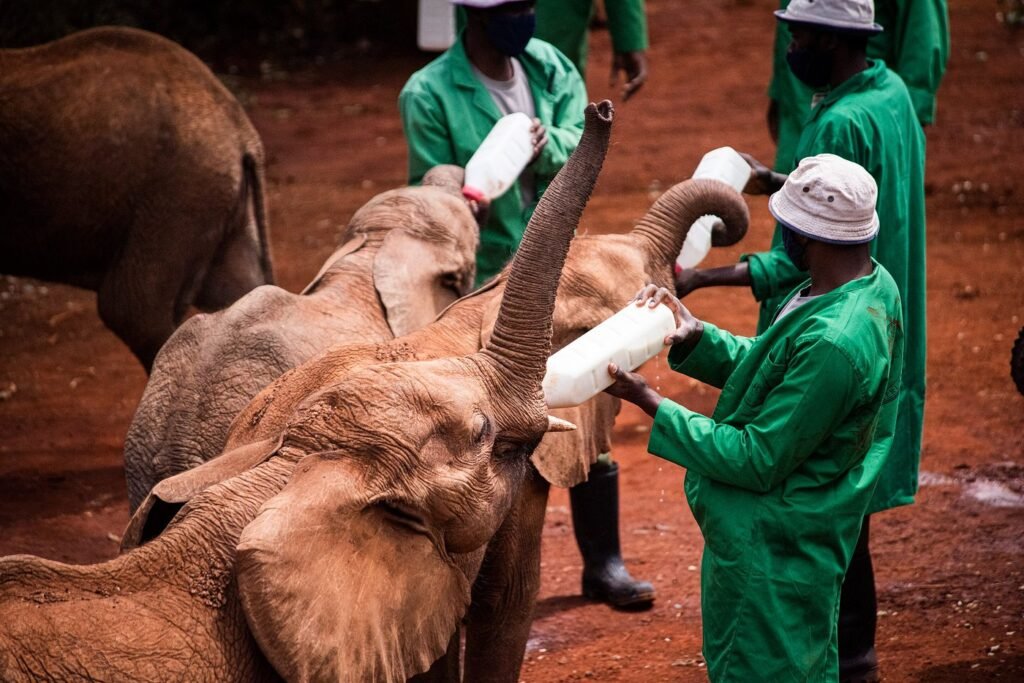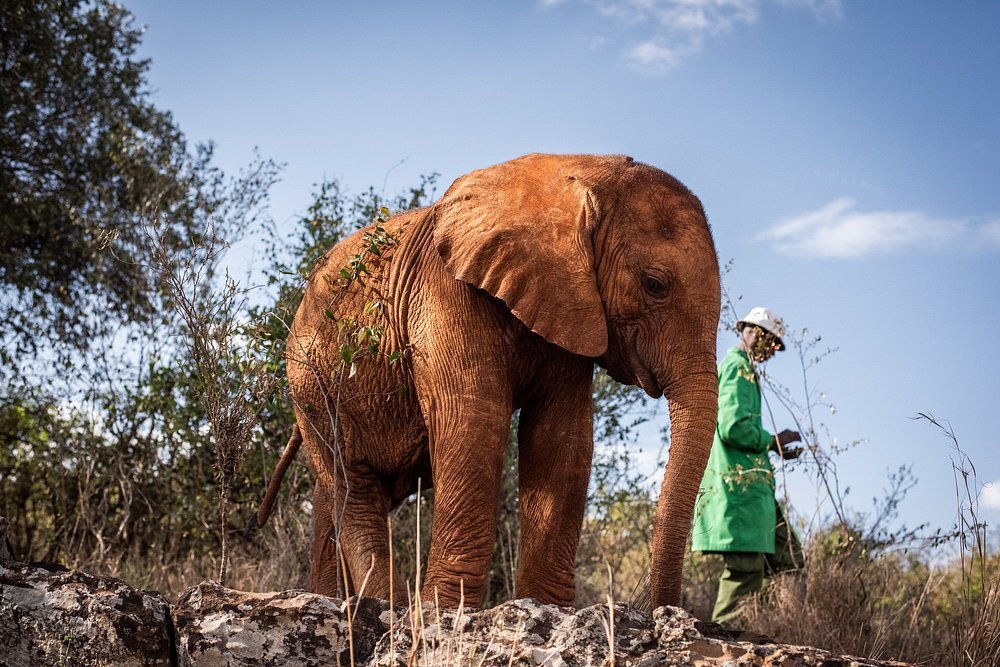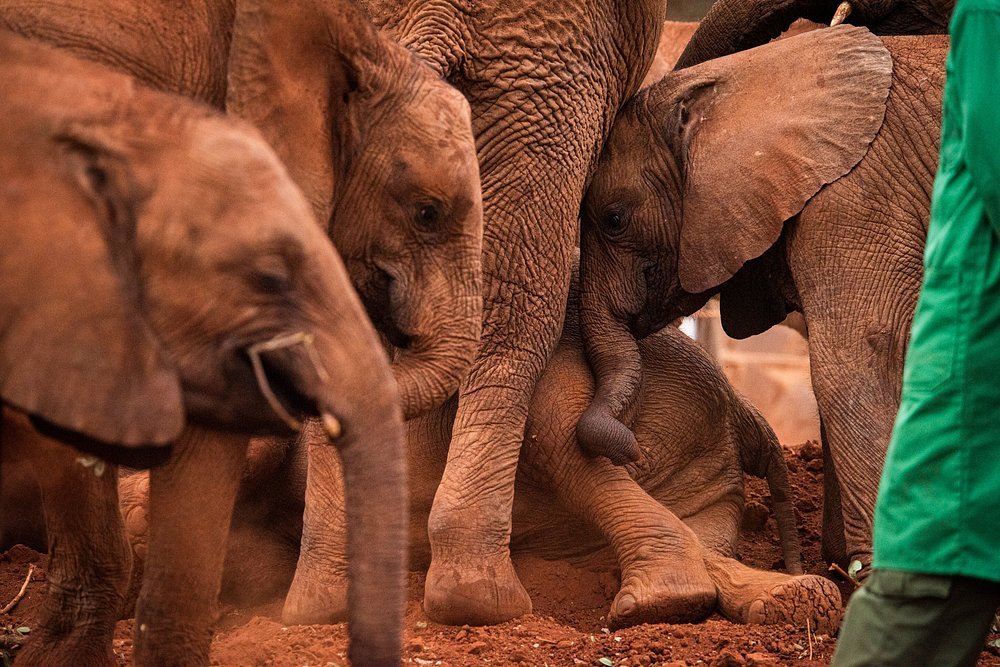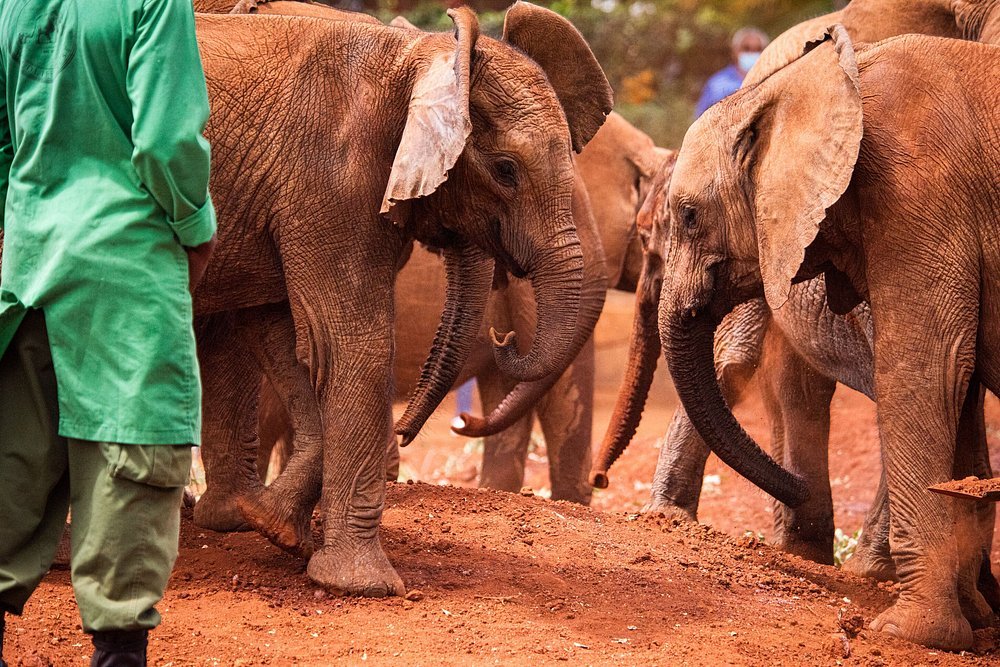David Sheldrick Wildlife Trust Elephant Orphanage – Visit Nairobi’s Iconic Elephant Sanctuary
Experience a heartwarming encounter with orphaned baby elephants at the world-famous David Sheldrick Wildlife Trust (DSWT) — now known as the Sheldrick Wildlife Trust. Located at the edge of Nairobi National Park, this elephant orphanage is one of the most touching wildlife experiences in Kenya.
In this guide, you’ll learn:
How to visit the elephant orphanage in 2025
Entry fees, opening hours & booking process
What makes this sanctuary unique
How to include it in your Nairobi safari itinerary





What is the David Sheldrick Wildlife Trust?
The Sheldrick Wildlife Trust is a world-renowned wildlife conservation organization, best known for rescuing and rehabilitating orphaned elephants and rhinos across Kenya.
Founded in 1977 in memory of David Sheldrick, the trust has become a global leader in elephant conservation and wildlife rescue. It’s one of the few places where you can:
- Witness baby elephants being fed and playing in the mud
- Learn about their rescue stories and personalities
- Support conservation efforts simply by visiting
Opening Hours & Best Time to Visit (2025)
As of 2025, the David Sheldrick Elephant Orphanage is open to the public under specific hours and advanced booking only.
| Public Visit Time | 10:00 AM – 11:00 AM (daily) |
|---|---|
| Pre-booking required? | Yes — via their official website |
| Entry Fee (Donation) | $20 USD per person (paid online) |
| Adoption Visits | Available at 5 PM (adopters only) |
What to Expect During Your Visit
During the one-hour public session, you’ll enjoy:
- Up-close viewing of the baby elephants in a safe enclosure
- A talk by a caretaker explaining each elephant’s name, rescue story, and journey
- Watching the elephants being bottle-fed and rolling in red Kenyan mud
- Learning about wildlife conservation in Kenya
It’s not a petting zoo — touching is not allowed, but the elephants may playfully approach the rope barrier.
Is the Elephant Orphanage Worth Visiting?
Absolutely. It’s a rare opportunity to see orphaned elephants up close while supporting a cause that makes a real impact. Visitors often describe it as:
- “The most emotional part of my trip”
- “Incredible for photography and wildlife lovers”
- “A meaningful way to contribute to conservation”
How to Visit the Sheldrick Elephant Orphanage with Us
You can visit the orphanage on a half-day or full-day Nairobi excursion, or include it in a pre-safari itinerary.
Popular Options:
Half-Day Nairobi Excursion »
Includes:
- Pickup from hotel or airport
- Entry to Elephant Orphanage
- Optional add-ons: Giraffe Centre, Karen Blixen Museum, Kazuri Beads, Kiambethu tea farm tour
Custom Safari Add-On
Flying into Nairobi? We’ll schedule your visit before your Masai Mara or Amboseli safari begins.
How the Sheldrick Wildlife Trust Rescues & Rehabilitates Elephants
The organization operates across several national parks in Kenya, including Tsavo, Meru and Amboseli. Orphaned elephants are rescued after:
- Poaching incidents
- Human-wildlife conflict
- Drought and natural separation
They are cared for, socialized with other orphans, and eventually released back into the wild once ready.
Want to go deeper? Adopt an elephant for $50/year and get monthly updates.
Family-Friendly & Educational
- Ideal for kids age 5+
- Engaging conservation talk
- Wheelchair accessible
- Great for school groups or family safaris
Location & Access
Location: Mbagathi River Road, Nairobi (near KWS HQ)
Drive time: ~15-30 minutes from most Nairobi hotels
Parking available
Airport transfer option: Yes, we offer pickup from JKIA or Wilson Airport
Travel Tips for 2025 Visitors
- Book at least 1–2 weeks in advance (spots are limited)
- Wear sun protection — it can get hot!
- Bring a camera (no flash)
- No food or drink allowed inside
- ❌ Do not expect to touch the elephants
- Consider adopting an elephant online for a private visit at 5 PM
Plan Your Visit Today with Annest Kenya Safaris
Let us take care of the details so you can enjoy this once-in-a-lifetime experience.
Transport from hotel or airport
Optional combo tours
Fast & secure booking support
Private or group options
Email:booking@annestkenyasafaris.com
Call or WhatsApp: +254 112458885
Contact Us to Book »
🔗 Related Pages to Explore
- Nairobi Excursions »
- What to Pack for an African Safari »
- Best Time to Visit Kenya »
- 3-Day Nairobi & Masai Mara Safari »
FAQ – David Sheldrick Elephant Orphanage
No. Advance booking is mandatory via their official website. Talk to us to today we will handle everything for you.
Yes! Adoptions are $50/year and include a private 5 PM visit, newsletters, and updates on your chosen elephant.
No, but it’s located right next to the park entrance and often combined with a Nairobi National Park safari. You will need to Pay for Nairobi National park to access.
1 hour (10:00–11:00 AM)
Comfortable walking shoes, hat, sunglasses, and light clothes. It’s an outdoor venue.

